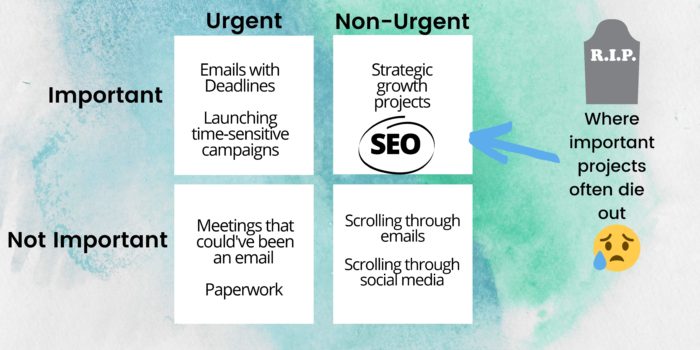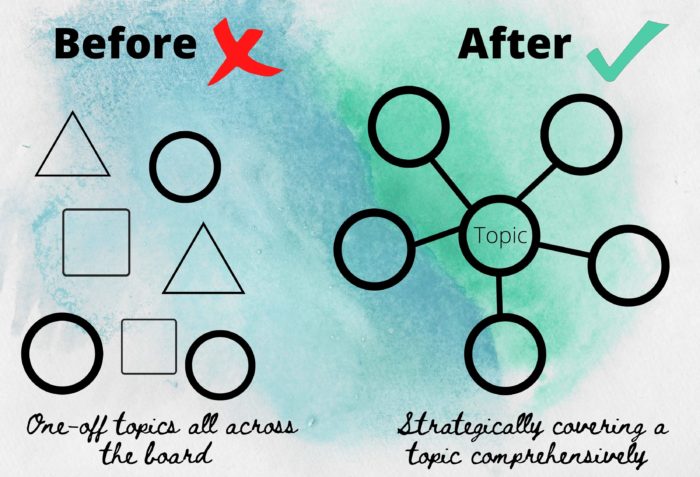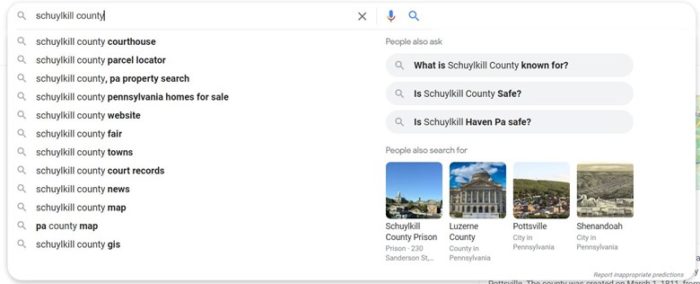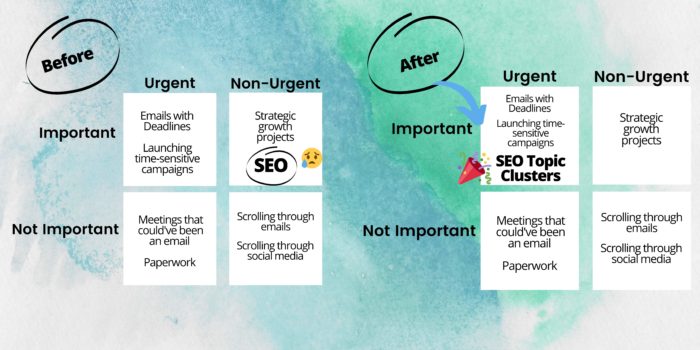Are you familiar with the Eisenhower Matrix? It’s the matrix that helps you distinguish between important, not important, urgent, and not urgent tasks. It also visually shows why it may be hard to get marketing projects done if you’re constantly working in the first Important/Urgent column and you can never get over to the Important/Non-Urgent quadrant.
As Steven Covey says, “Most of us spend too much time on what is urgent and not enough time on what is important.”
When it comes to marketing, SEO is often relegated to the “Important, Not Urgent” box.

And that’s in direct contrast to what I’ve heard over the past 2 years. That in the world of COVID and everything shifting online, being findable and visible is more important than ever.
Everyone knows better brand visibility and more traffic from new prospects is essential, but it’s a long-term strategic channel that requires many things to come together. It’s easier to get time-sensitive single-tasks crossed off that fall into the “Important, Urgent” box.
I know, I know. I’m preaching to the choir.
If you want to crack the code to advance SEO initiatives, you need to figure out how to get to the next box, or move SEO into the “Important, Urgent” box so you can get bigger, better, results faster.
Let me introduce you to one of the most effective SEO techniques you can add to your plan for 2022: SEO Topic Clusters.
What Is an SEO Topic Cluster and Why Should I Care?
Topic clustering is a technique of strategically creating, optimizing, and organizing content on your website in order to “own” topics aligned to your organization’s area of expertise and move new people into your marketing funnel.
Topic clusters, when done right, are associated with more relevant organic traffic, higher rankings, additional visibility in the SERPs, and greater ROI.

Why Is a Topic Cluster Important in 2022?
A topic cluster is important in 2022 because it touches on darn near every single 2022 trend. If you have read any of my recent “trends” content, you may have heard me throw around phrases like E-A-T, Entity Search, NLPs (natural language processing), Intent, and Shifting from Keywords to Topics.
Topic clusters embody all of the above.
Plus, have you noticed new features and elements, such as the enhanced autocomplete?

If you haven’t shifted to accommodate specific, nuanced, comprehensively-covered topics, you won’t be ready for what 2022 will bring.
Why Are SEO Topic Clusters so Effective for Marketers?
Here’s why I love training marketers on the Topic Cluster technique:
- They’re easier to implement in a manageable period (making it more likely SEO will get done)
- They’re an easy sell to the team and to stakeholders
- They incorporate ALL aspects of SEO in a way that’s not overwhelming
- They focus you and give purpose and meaning to your efforts

One-off, fragmented efforts are the kiss of death for SEO results. And that’s not going to work when we are accountable for results (organizational growth, traffic, and rankings).
Shifting from Keywords to Topics
Next time, we’re going to talk about how to make Topic Clusters work, whether you’re beginner, intermediate, advanced, or in between. And how to shift from keywords to topic clusters to stay relevant and give Google (and users) what they want.
Jenny Munn
Latest posts by Jenny Munn (see all)
- Four 2024 SEO Planning Tips for World Domination - November 16, 2023
- SEO Planning Tip: Why You Need a CYA Clause - November 3, 2023
- How Long Does SEO Take to Show Results? (Updated for 2023) - August 9, 2023


